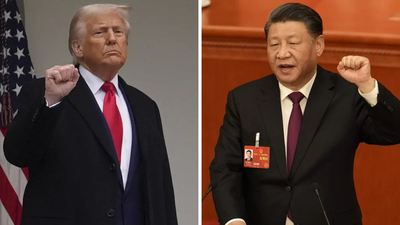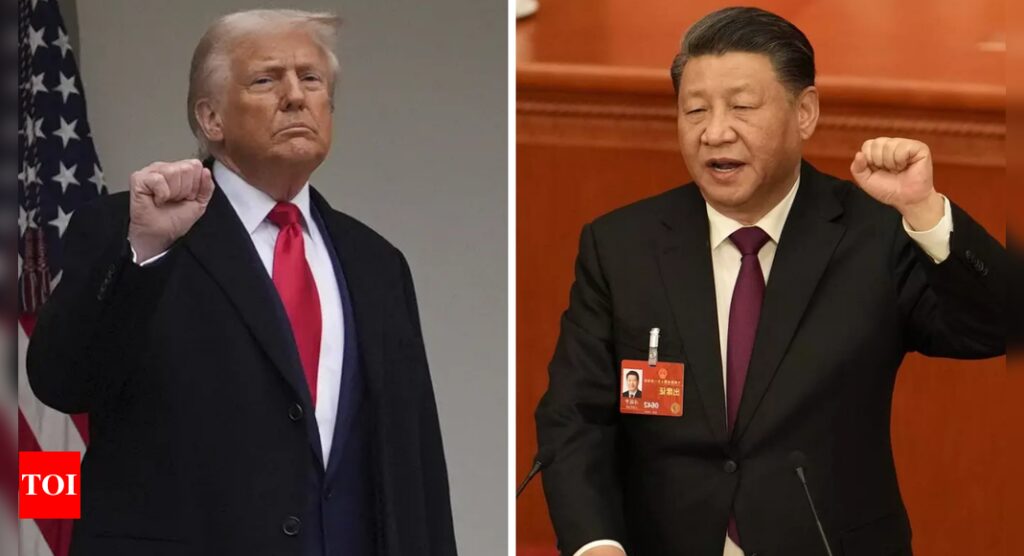
NEW DELHI: During their talks with negotiators from Asean, Indian officials are facing a China problem. Whenever they seek to offer any concessions as part of the review of the trade deal, they look at Chinese companies that have set up a base in the 10-member bloc.
It’s a problem that is encountered by every country across the globe with the US bearing it the most, given its massive trade deficit with China – pegged at $295 billion in 2024 on exports of $439 billion. While the US trade deficit soared from $882 billion in 2008 to $1.2 trillion 15 years later, China’s surplus shot up from under $300 billion to $823 billion and is on the verge of breaking the $1 trillion mark.
With the average American unhappy with Beijing, and the wariness only increasing after the Covid outbreak, if there is one country that Trump has sought to hit hard, it’s China. In his second term he imposed a 54% tariff, including the 34% announced on Tuesday, on several Chinese goods on top of the measures taken during his first stint in the Oval Office.

The cheap and often subsidised exports by this “non-market economy” are expected to take a massive beating due to the presence of Chinese companies in several other countries, including Vietnam and Indonesia, which have been slapped with high reciprocal tariffs as the origin of the product was sought to be changed to avoid tariffs or remain part of the global supply chain.
During Trump’s first term, Vietnam was home to restamping of Chinese goods as companies sought to dodge tariffs by citing a non-China origin. Subsequently, especially during the China-plus-one diversification, it became home to several companies that were vendors for global giants, making its economy extremely export-dependent. Estimates suggest that almost a quarter of its GDP is linked to exports.
Mexico is another country that has emerged as a large manufacturing base for the Chinese due to its proximity to the US as well as the attempt by these companies to shed their home-country tag and cross the border. While Mexico has averted reciprocal tariffs, the sword of higher duties is still hanging.
China’s retaliatory tariffs on the US on Friday is only going to complicate matters, with Trump asserting that he is not going to back off.














